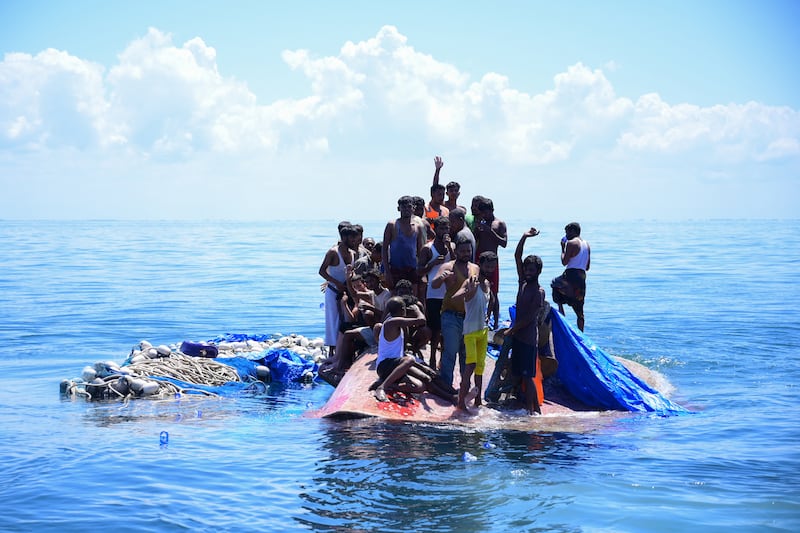Rohingya rights groups on Thursday decried “regional inaction and global neglect” over the plight of the Muslim minority from Myanmar after more than 400 refugees were feared drowned when two boats sank this month after setting sail from Bangladesh.
Last week, the U.N. refugee agency said that while details remained unclear, it had collected reports from family members and others about two separate boat tragedies on May 9 and May 10 in which 427 people may have died. It said both boats left from Cox’s Bazar, Bangladesh, where about 1 million Rohingya shelter in camps.
Twenty-six Rohingya diaspora groups, including the U.K.-based Burmese Rohingya Organization, co-signed Thursday’s statement that said just 87 people had survived the two incidents. It added authorities had intercepted a third vessel with 188 people aboard as it attempted to leave Myanmar on May 18.
“These back-to-back disasters are the worst loss of Rohingya lives at sea this year, and they expose the deadly consequences of regional inaction and global neglect,” the statement said, adding that most of those on board were Rohingya who had already been displaced from their homes in Myanmar’s western Rakhine State.
“They were fleeing a growing campaign of widespread violence by the Arakan Army, amounting to a continuation of the ethnic cleansing first started by the Burmese military,” the statement said, referring to a rebel group that has seized control of most of Rakhine state from the Myanmar military.
“Those confined to displacement camps in Burmese military-controlled zones are starving, children are suffering from acute malnutrition, and many families are completely without food,” the statement said.
Most Rohingya are from Rakhine state and most are stateless, regarded as migrants from South Asia and not one of the ethnic groups classified as indigenous in Buddhist-majority Myanmar’s constitution.

About 750,000 Rohingya fled a violent Myanmar military clearance campaign in Rakhine in 2017 and crossed into Bangladesh. The U.S. government determined the killings and rapes by the military amounted to genocide.
Now each year, thousands of Rohingya attempt to leave Bangladesh and Myanmar aboard rickety vessels for other destinations in Southeast Asia. Reports of boats sinking and mass fatalities are common.
The Arakan Army, consisting Buddhist ethnic Rakhine people, has also been implicated in serious rights abuses against Rohingya, human rights groups say, although the AA denies it.
In recent years, the AA’s position on the persecuted Muslim minority has vacillated. After the 2021 coup in Myanmar when the military seized power from a civilian government, the AA evinced a moderate and inclusive position on the Rohingya. But it has since been accused of mass killings after a campaign by the Myanmar junta to recruit Rohingya men, sometimes forcibly, into militias to fight the AA.



